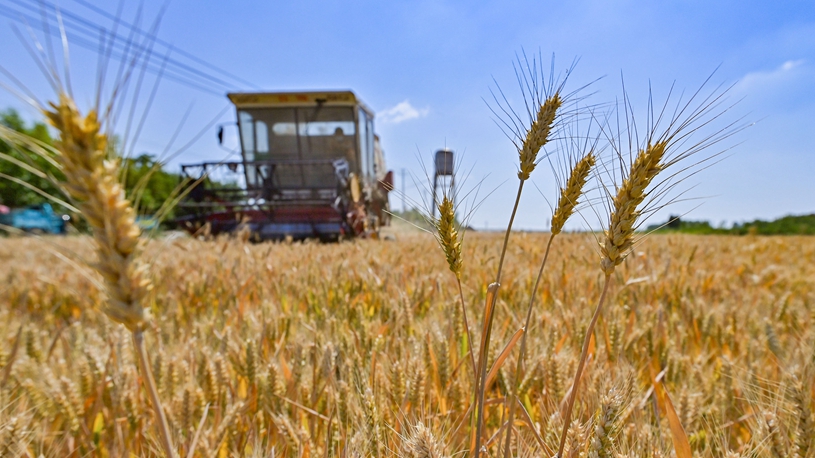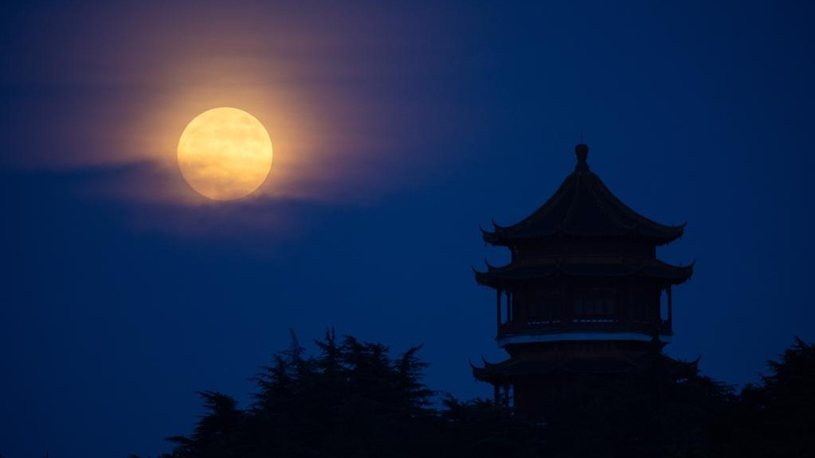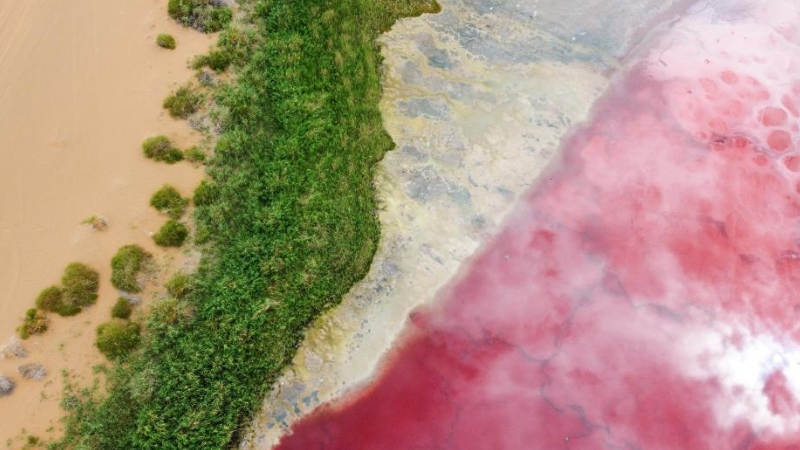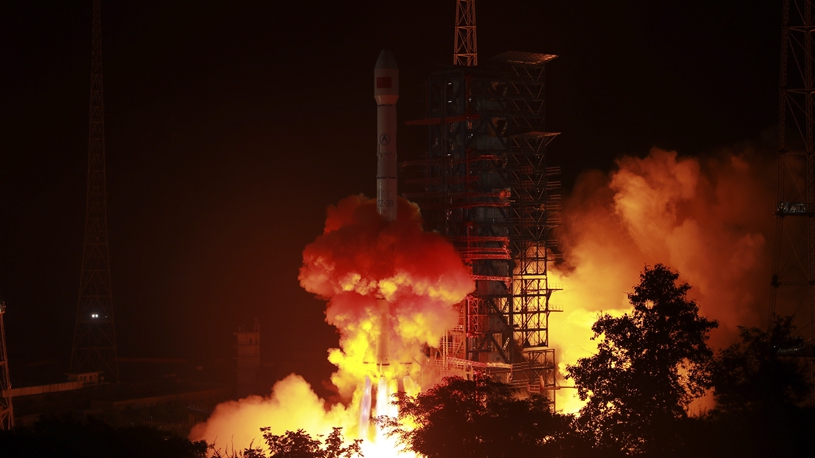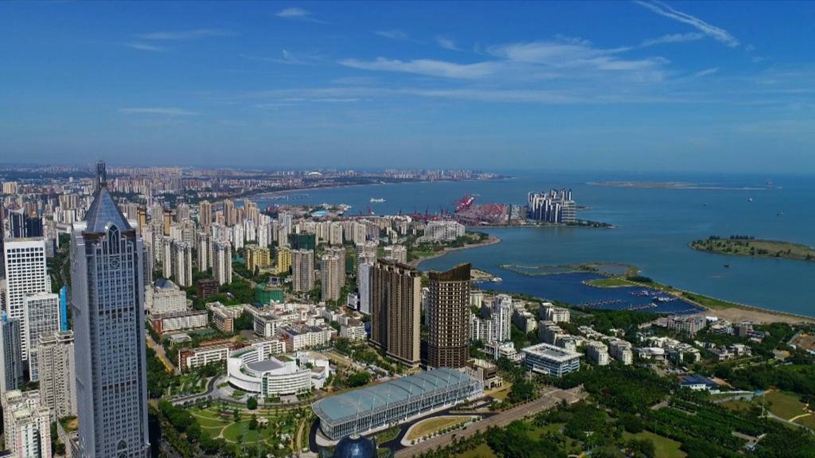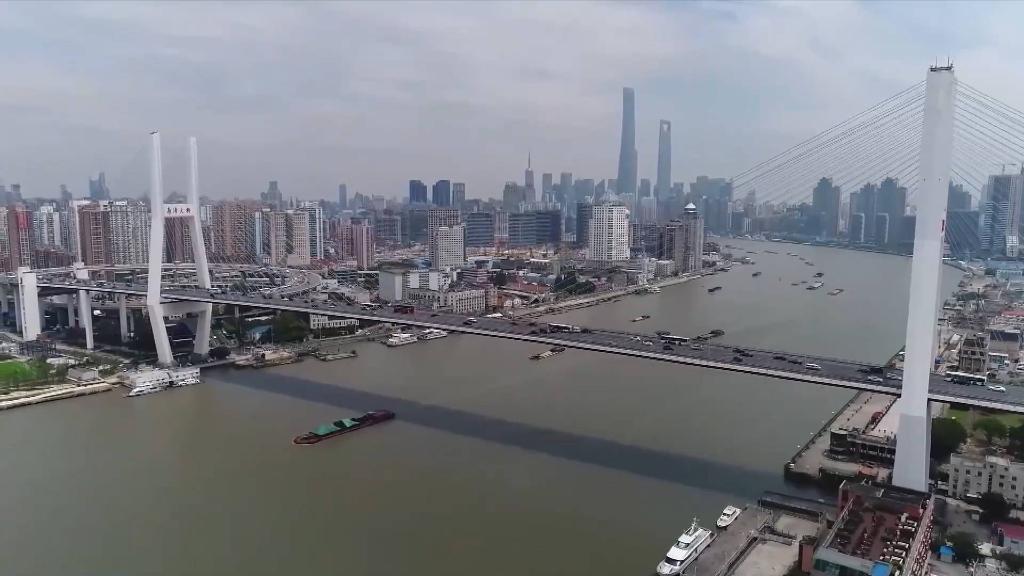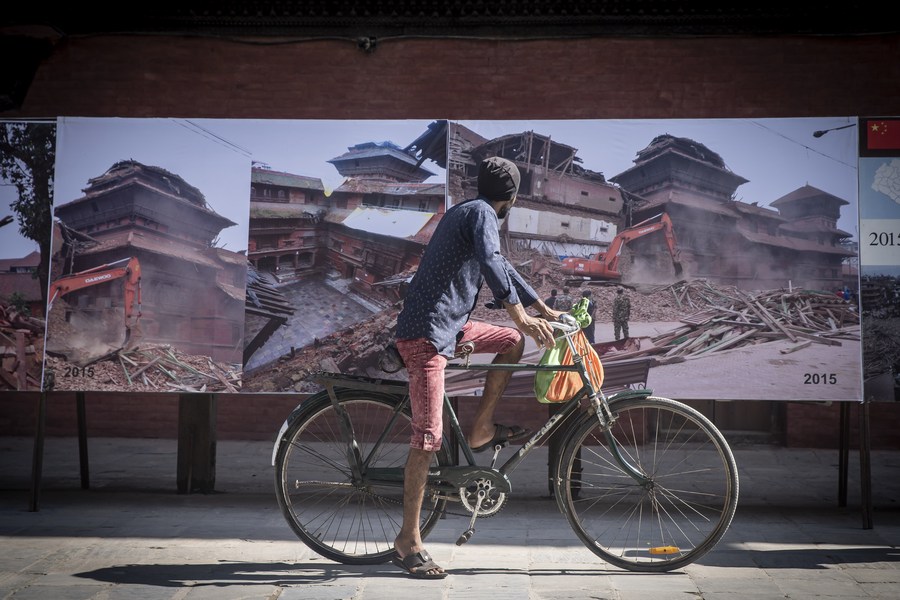
A man looks at the pictures of the quake-hit Nine-Storeyed Basantapur Palace complex in Kathmandu, Nepal, July 15, 2022. (Photo by Hari Maharjan/Xinhua)
The Nine-Storeyed Basantapur Palace complex was badly damaged in the 2015 massive earthquakes. In August 2017, the Chinese government and the Nepali government agreed to launch the restoration project.
KATHMANDU, July 19 (Xinhua) -- Despite the COVID-19 pandemic, the restoration project for the quake-hit Nine-Storeyed Basantapur Palace complex in Nepal has been completed with Chinese aid after hard work for nearly five years.
The Chinese government and the experts have been able to "erect this monument with its original authenticity, integrity as well as its outstanding universal value," Damodar Gautam, director general of Nepal's Department of Archaeology, said on Friday.
The complex, which lies at the heart of the Kathmandu Durbar Square, a world cultural heritage site in the Nepali capital, was badly damaged in the 2015 massive earthquakes.
The top three storeys of the Basantapur Palace situated in the southwest corner of the complex totally collapsed, while part of the Bhaktapur Tower in the northeast corner collapsed as well, and some 80 percent of the complex walls suffered varying degrees of deformation and cracking, with over 10,000 wooden components damaged and scattered.
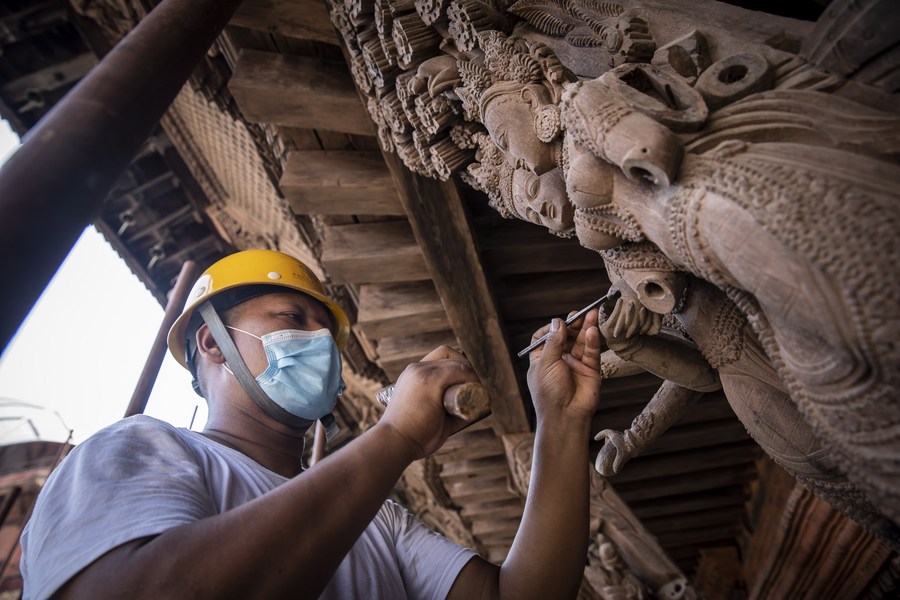
A man works to restore the quake-hit Nine-Storeyed Basantapur Palace complex in Kathmandu, Nepal, July 15, 2022. (Photo by Hari Maharjan/Xinhua)
In the aftermath of the tremors, both the Chinese government and the Nepali government agreed to launch the restoration project for the Nine-Storeyed Basantapur Palace complex and the project started in August 2017.
According to the Chinese Academy of Cultural Heritage which has been undertaking the restoration project, post-quake recovery for the complex was pressing, challenging, risky and hard for the team, as the damaged parts of the complex would suffer less loss if the project could move ahead as quickly as possible.
In addition, the complex remaining open to visitors has challenged the team to ensure the safety of both tourists and the project. As many as some 200 people were involved in the reconstruction at the peak time.
Gautam noted that the Chinese experts always consulted with the Nepali side about how to keep the complex's traditional value, design and originality so that "the outstanding universal values of the world heritage site could be maintained."
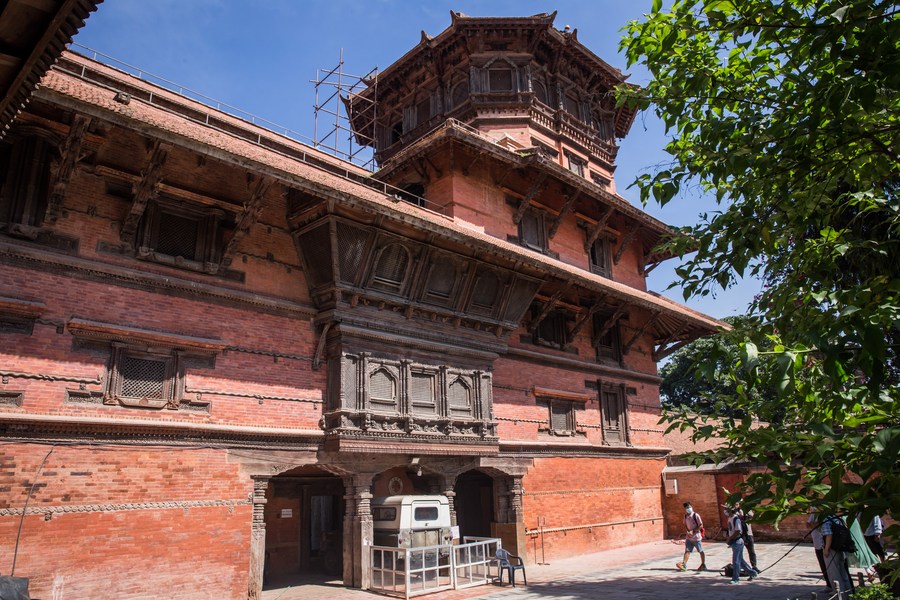
Photo taken on July 15, 2022 shows the view of the quake-hit Nine-Storeyed Basantapur Palace complex after the restoration in Kathmandu, Nepal. (Photo by Hari Maharjan/Xinhua)
"They are very cautious about maintaining the authenticity, integrity and values of the world heritage site," he added.
For chief engineer Zhou Jianguo and the team, they had insufficient historical references to work on at the very beginning, especially for the collapsed parts. They had to visit veteran craftsmen and collect old photos in their efforts to restore the historical traces of the complex.
The team moved to reinforce the structures by means of a so-called reversible soft connection, which enabled them to achieve a minimal disturbance but preserve the complex's originality to the most possible extent, and the Chinese team has achieved a patent for the innovative technology in China.
In addition, as the complex had numerous fine and exquisite wooden structures and sculptures, the team used as many original components as possible and all the damaged carvings in the windows have been restored elaborately.
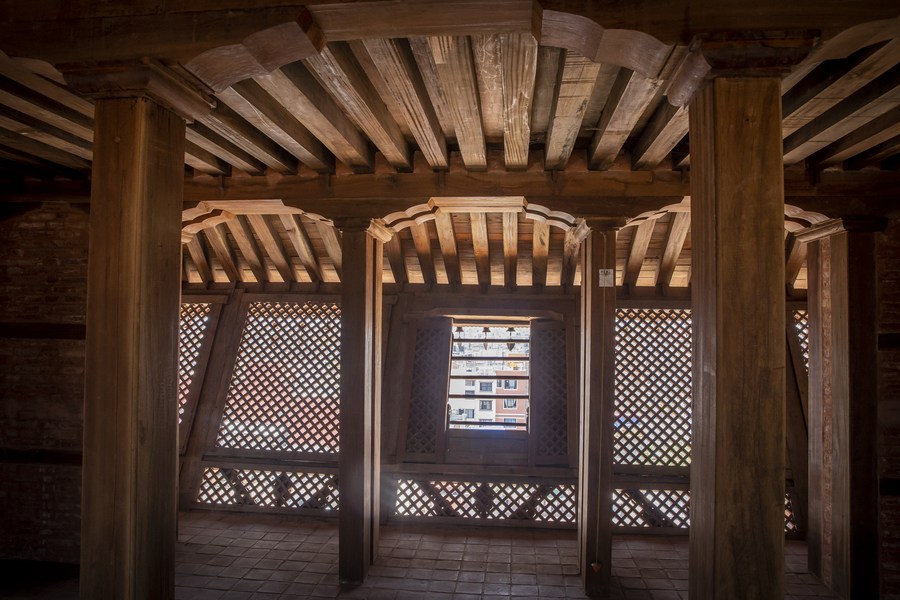
Photo taken on July 15, 2022 shows the interior view of the quake-hit Nine-Storeyed Basantapur Palace complex after the restoration in Kathmandu, Nepal. (Photo by Hari Maharjan/Xinhua)
About 85 percent of the old wooden components were applied in the project, while around 3,700 pieces of wooden components were newly built as supplementary parts for the restoration project, accounting for 15 percent of the total wooden components used.
Nepali sculptor Manhari Maharjan felt "fortunate" to work with the Chinese team.
"We could learn a lot from the Chinese team as they identified the carvings of designs that we had not seen earlier," he said. "If a window needed to be repaired, the Chinese team observed the window very well and invited us to discuss with them about whether something was missing in the window."
"They asked us to compare the available window with the picture of the original window and make the same window," he added. "We sketched the missing parts based on the picture of the original window and helped to create a window like the original one."
The restored palace complex looks "very beautiful" and "historical," said a Nepali tourist, who was not allowed inside at the time, as the open time had not come yet.■

